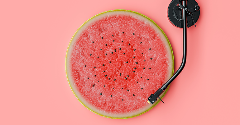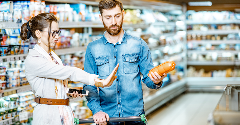News
AB Inbev completes its acquisition of the Craft Brew Alliance
16 Oct 2020The merger of AB InBev and the Craft Brew Alliance (CBA) is now finalized following the divestiture of brewery operations in Hawaii. In September the U.S. Department of Justice approved the companies’ decision to sell CBA's Kona Brewing operations in Hawaii to a third-party, PV Brewing, thereby satisfying the requirement to eliminate the risk of a monopoly in the Hawaiian beer market. AB InBev will retain the mainland operation of the brand.
Terms of the deal include AB InBev purchasing the remaining 68.8% stake it did not previously own in Craft Brew Alliance for about $321 million, or $16.50 a share in cash. Under the newly merged company, the company said the number of employees will expand by 3,200 and operations will enlarge by 40 taprooms, brewpubs and breweries across the U.S. CBA's common stock ceased trading on the NASDAQ Global Select Market effective September 30.

Additionally, several CBA executives will migrate to become employees of AB InBev. Andy Thomas, formerly CEO of CBA, will serve as general manager of Kona Brewing Co.'s mainland operations and regional Brewers Collective brands. Christine Perich, formerly Chief Financial and Strategy Officer for CBA, will serve as general manager of regional breweries on the West Coast.
This deal was 25 years in the making. A quarter of a century ago, Widmer Brothers Brewery and Redhook Brewery sold minority stakes to the beer giant in exchange for guaranteed access to its nationwide distribution network, and since then, AB InBev’s interest in craft beer has only grown.
Craft brews have repeatedly proved to be a bright spot in an otherwise challenging segment, and AB InBev is clearly interested in expanding its market share in a segment where consumers are continuing to demand more options. Beer sales experienced their fourth straight year of declining sales and reported a 2.3% dip in 2019. In recent years the mega brewer has scooped up Goose Island Beer, Devils Backbone and Karbach Brewing as it works to pivot away from traditional lagers where sales have remained flat.
However, the pandemic has hit the overall beer industry hard. In a report from the Beer Institute, the Brewers Association, the National Beer Wholesalers Association and the American Beverage Licensees, the associations forecast a $22 billion decline in retail beer sales by the end of 2020 and the loss of more than 651,000 jobs supported by the U.S. beer industry.
Craft brewers have been especially hard hit because of their size. While CBA was not comprised of microbreweries – the Kona brand alone produced about 500,000 barrels in 2019 – it is still beneficial to have the backing of an industry titan with a $154 billion market cap. Since the two companies have been working together for multiple decades, it is unlikely that the finalization of this merger will change much in terms of the relationship between the two entities. However, for AB InBev the closing of this deal marks the end of an era and begins a new one where craft beer is now, in many cases, Big Beer.
Related news

Retail landscape lacks nutritious and affordable food, says ATNi
30 Dec 2025
A rapid increase in modern food retail has given retailers growing influence over consumer diets, according to global non-profit ATNi’s latest assessment.
Read more
Debate over ban on ‘meaty’ names for plant-based products reaches stalemate
26 Dec 2025
The debate over a ban on plant-based products using “meaty” terms has reached a stalemate, leaving manufacturers in limbo and still facing overhauls to their marketing and packaging.
Read more
Multi-sensory food and drink products to gain traction in 2026
16 Dec 2025
Trend forecasters predict that sensory elements will play a larger role, helping food and beverage brands differentiate themselves in a competitive market in 2026.
Read more
Big appetite for M&A between European and US food and drink companies
3 Dec 2025
Persistent tariffs on EU food and beverage exports have helped drive record levels of M&A activity between European and US companies this year, according to analysis by ING.
Read more
Non-UPF Program extends certification scheme to entire food industry
30 Nov 2025
The Non-UPF Program has extended its certification scheme to the wider food sector, championing a move towards healthier consumption habits.
Read more
Lancet study links UPFs to chronic disease risk
26 Nov 2025
UPFs are consistently associated with an increased risk of diet-related chronic diseases, according to a comprehensive review of global evidence in The Lancet .
Read more
Concerns swirl around cinnamon’s compliance with EU law
25 Nov 2025
Cinnamon may be a top functional ingredient, but it needs stronger protocols to ensure it meets EU food safety laws and quality standards, say researchers.
Read more
Oat Barista: Innovation for game-changing beverages
20 Nov 2025
Oat Barista is a clean label, sustainable, and innovative drink base specifically designed to create the perfect foam in one single ingredient.
Read more
How younger consumers are redefining ingredient choices and rejecting brand loyalty
18 Nov 2025
Gen Z and millennial consumers’ preferences for transparency, functionality, and purpose are “redefining the very nature of consumption itself”, says SPINS.
Read more
Hybrid formats and flexible positioning to disrupt category norms in 2026
17 Nov 2025
Trend forecasters expect food and drink to move more fluidly across occasions, functions, and formats as consumers seek versatility, novelty, and convenience.
Read more